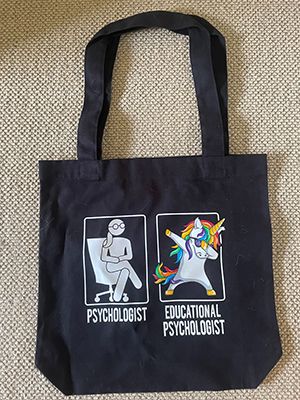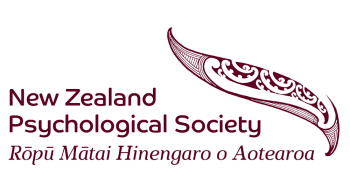
Institute of Educational and Developmental Psychology (IEDP)
The Institute of Educational and Developmental Psychology (IEDP) is the professional organisation that supports psychologists concerned with the learning and wellbeing of young people in Aotearoa New Zealand. Its members work primarily with children, young persons, their families and in learning environments. Educational psychologists and psychologists who work in education are integral to the identification, assessment and ongoing support of children and young people with special needs, working across the education, social services and health sectors. Members are informed by a strong research base that includes training and experience in the core areas: human development; applied behaviour analysis; psychological assessment; psychological research; counselling theory and practice. There are currently approximately 170 members and student subscribers from all areas of the country.
Mission
To represent, promote and advance the contribution of educational and developmental psychologists to support the learning and wellbeing of individuals, whanau, communities and society.
Goals
The IEDP will:
- Provide professional support and networking opportunities to members.
- Raise the profile of educational and developmental psychologists to highlight the contribution the profession can make to individuals, whanau, communities and society.
- Represent educational and developmental psychologists to the public, media and government to promote the use of psychological knowledge to support equality and uphold the spirit and intent of Te Tiriti o Waitangi.
The 2023/24 IEDP Executive Committee members are:
Chairperson: Nicole Mincher , email
Secretary: Sarah Painter
Newsletter Editor: Carolyn Revell
Treasurer: Alisha Bliss
General Committee: Ros Pullen, Margaret McNally and Claire de la Haye-Stokes
Student Representative: Katrina Stephenson, Greg Ratcliffe, Rochelle Watson, Carolyn Revell, Jemimah Long and Katherine Ivanov.
Learn more about the IEDP Committee roles
Like our page or follow IEDPNZ on Facebook
How to join the IEDP
You need to be a full member or a student subscriber of the NZPsS to join the IEDP. Membership of IEDP is free. This includes full members and student subscribers of the Society.
NZPsS students: If you are an NZPsS student and enrolled in an educational programme we add you as IEDP student automatically- no need to complete another application form.
Please note that NZPsS student subscribers can become institute student subscribers only. To become a full member of an institute you need to be a full member of NZPsS first.
Click here for the online application
Webinars and Resources
Internship Presentation - Taking the mystery out of internships.
A panel workshop discussing what you need to be an intern. Please see here for the slides.
Psychologists WoF - CCP in an Education Context
A webinar with guest speaker Ann Connell from the NZ Psychologists Board followed by a panel discussion. Click here for the pdf of presentation slides. Click here to watch the webinar: https://vimeo.com/571984258/a331f543e6
Education Scope Competencies: Questions to prompt reflection on competencies and identify areas to focus on during self-reflection. Questions can lead to learning objectives and actions.
Assessing Writing - Ideas for Psychologists
A webinar presented by current IEDP chair Robyn Stead and Michele Blick (both registered educational psychologists). Click here for the slides. Click here to watch the webinar: https://vimeo.com/527582894
Q-interactive Q&A Webinar
A webinar presented by Dr Melissa Stephens answering questions submitted by IEDP members about Q-interactive. You may read the handouts or follow the link for the recording https://register.gotowebinar.com/recording/6350299076262246662.
What do young people want from digital support?
Associate Professor Kerry Gibson, former president of the NZPsS, presents relevant information for educational psychologists about digital support for young people with mental health concerns. This may be a new area for many of us in the profession however is important for us to understand the way young people prefer to access support.
https://www.orygen.org.au/Education-Training/Resources-Training/Webinars/What-do-young-people-want-from-digital-support
Special Assessment Conditions.
Please review the information contained in the below NZQA webpages about special assessment conditions including specific information for specialist report writers.
If you have any specific questions about writing a report for special assessment conditions please email them to the following address to communicate directly with NZQA specialist staff .
WISC-V
Webinar: https://www.pearsonclinical.com.au/WISC-training-NZ
WISC-V Handout
WIAT-III
Webinar: https://www.pearsonclinical.com.au/wiat-iii-nz-training-signup
Handout: WIAT-III
WISC-V and WIAT-III to diagnose learning disorders
Webinar: https://www.pearsonclinical.com.au/learning-disorders
Handout: WISC-V & WIAT-III to diagnose learning difficulties
When the brain doesn’t hear: Auditory processing disorder in children
A recording of a professional development webinar presented by Dr Bill Keith. Recording: https://youtu.be/Q0ipGsB4mSc
Handouts: NZ Guidelines on APD-Education, NZ Guidelines on APD-General, APD Checklist, ASD APD Poster, Schoolposter, TEAP, Seminar slides, Bio

This bag is available for sale in the Gecco Shop here https://nzps.gecco.co.nz/shop/product/363
NZPsS members: $30 plus postage nationwide
Non-members: $40 plus postage nationwide
Psychology Week
In 2022 the Institute of Education and Development Psychology hosted a Webinar entitled "Unpacking Educational Psychology ". Here is the link to the recording: https://vimeo.com/713832276/3cc28f49cc
In 2021 the Institute of Educational and Developmental Psychology hosted a panel discussion on Anxiety Experienced by Children and Young People in the School Context : presentation/resources available as a pdf file
In 2018 members of the Institute of Educational and Developmental Psychology shared their perspective on what children really need to know as they move from early childhood to primary school: https://www.totstoteens.co.nz/education-and-learning/helping-children-transition-from-ece-to-primary-school/
IEDP Newsletters
IEDP Student Newsletter April 2023
IEDP's November 2022 Newsletter
IEDP's June 2022 Newsletter
IEDP's December 2021 newsletter
IEDP's June 2021 newsletter
IEDP's December 2020 newsletter
IEDP's June 2020 newsletter
IEDP's December 2019 newsletter
IEDP’s June 2019 newsletter
IEDP’s December 2018 newsletter
IEDP’s June 2018 newsletter
IEDP’s December 2017 newsletter
We welcome contributions from our membership. Please contact Kate Garland (editor)
The Role of the Educational Psychologist
The ‘pithy statement’ was developed for the Psychology Workforce Group to explain the unique role of an educational psychologist.
This document explains in plain language what additional value fund holders and government departments can expect by investing in educational psychologists.
Psychologists registered in the Educational Scope are able to provide diagnosis, specifically, when they are competent to do so and the situation merits it. Read more
IEDP Submission to the Ministry of Education for the Review of Tomorrow’s Schools (March 2019)
Briefing to the Incoming Minister of Education 2017 (December 2017)
Contact the membership administrator on for more information.
